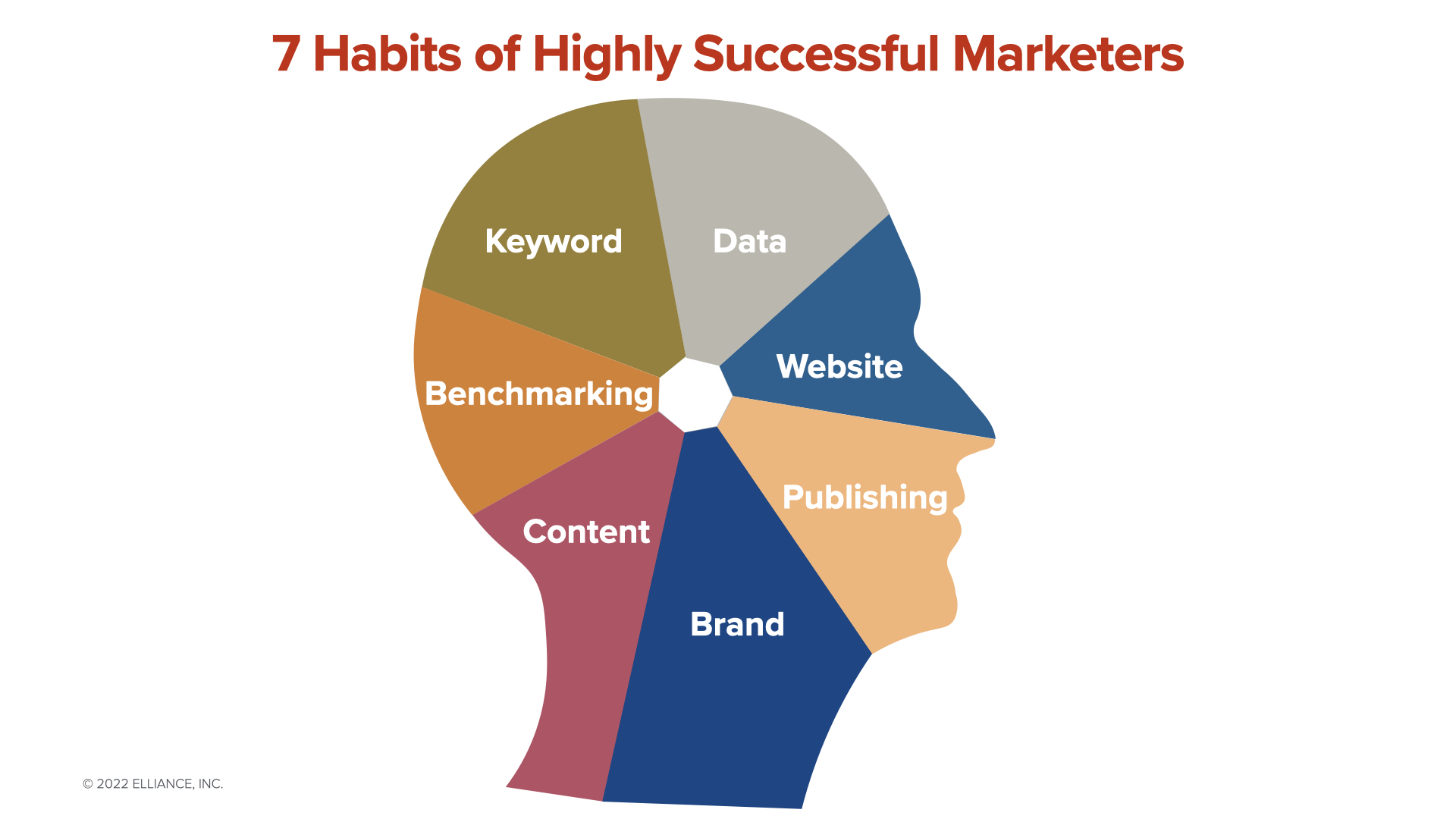The Habits of Successful Marketers – set goals for accountability
Marketing that matters makes an impact. To ensure your marketing resonates, set goals that define what you plan to achieve with each campaign and consider how accomplishing these goals can help you advance as a marketer. A marketing goal could be driving traffic to your website, increasing sales of your product line or improving consumer trust in your brand. Setting goals keeps you and your team accountable since you’re actively monitoring the progress of each campaign and these goals act as the foundation of your analytical skills. You’re not guaranteed to succeed with a goal in mind but definitely more likely to as you’ll be motivated to better prioritize the right activities to focus on.
So how do you choose goals as a marketer that keep you accountable? First and foremost, they always need to be relevant to your company’s objectives so your marketing efforts are aligned with your organization’s strategic direction. You’re more likely to get support and buy-in when your goals tie in to key initiatives other stakeholders are working towards. As you’re assessing whether a goal’s aligned, consider how relevant it’ll be to your personal growth as a marketer and an indicator of your impact. This matters as you’ll want to reference the goals you’ve achieved as evidence to your supervisor as to why you should earn more responsibilities and advance to a new position.
Next, you need to dive into the details when it comes to goal setting. Get specific with what you’re trying to accomplish by using existing data to guide what achievable improvement is for your marketing. Is generating 5,000 leads a significant improvement? Or should you be focused on earning 50,000 leads from your next campaign?
Reviewing data on the performance of past initiatives, as well as industry benchmarks can help you pinpoint what success looks like specifically, grounding the ground in reality. From your perspective, the details of the goals you’re developing should help you highlight that you’re continually improving based on what you’ve learned as a marketer, another consideration is making sure each goal is measurable. To do so, determine which metrics would help you understand if you’ve accomplished your goal and then decide which analytics tools can help you monitor those specific metrics plus you’ll want to generate reporting to showcase the campaign’s performance as a way of visually presenting your contributions to the team.
Lastly, it’s important that your goals are timely, which basically means creating a reasonable deadline from when you need to accomplish them. Working from a timeline will help you better prioritize which marketing activities are worth investing in, especially considering the time commitment each may require.
A key consideration when setting a timeline is making sure you have enough time to reasonably achieve a goal as it’s common to underestimate how long marketing tasks take. You won’t always have control over the timeline but you can set expectations with others, so everyone knows when to expect results and how to stay on track given the timeframe.
It’s your turn to start setting goals that are relevant, detailed, measurable, and timely to ensure they have a lasting impact not only on your campaigns but on your career as well.
Some content are getting from linkedin.com.






